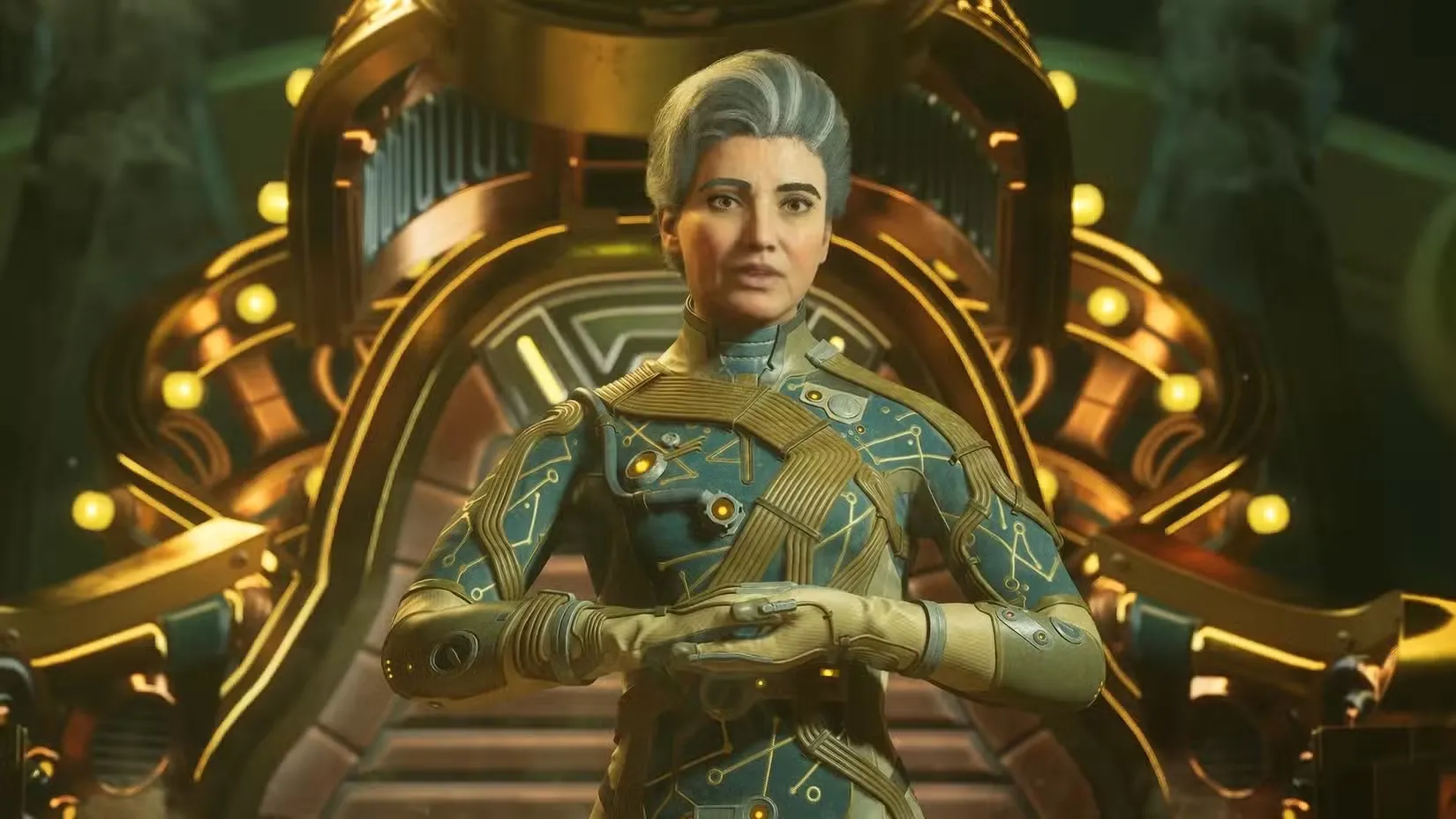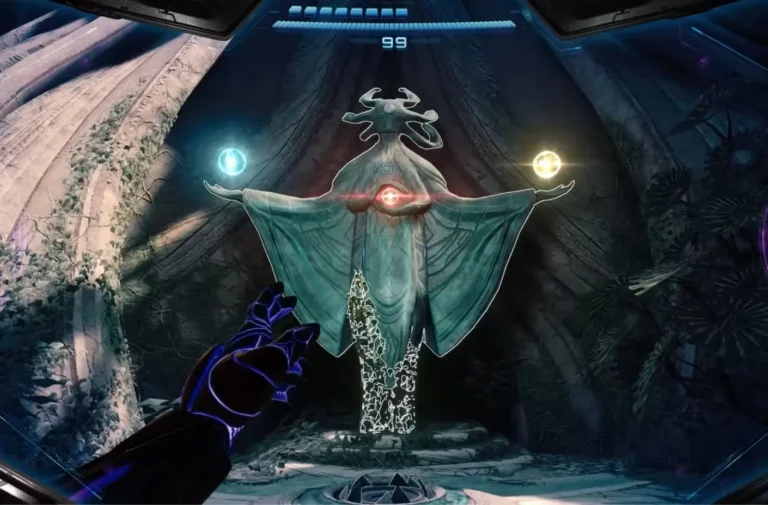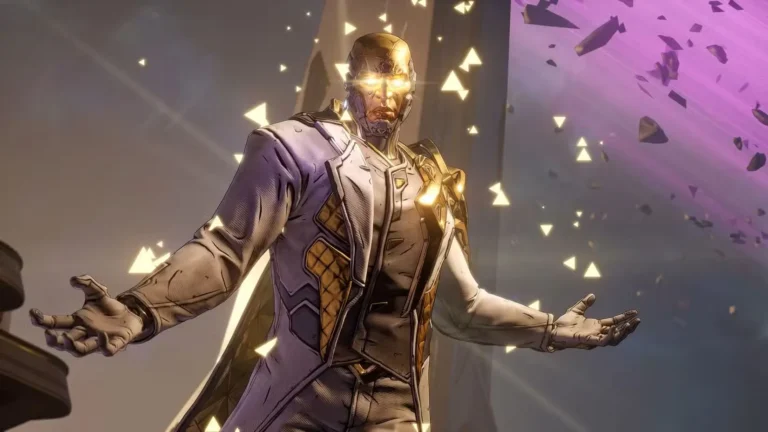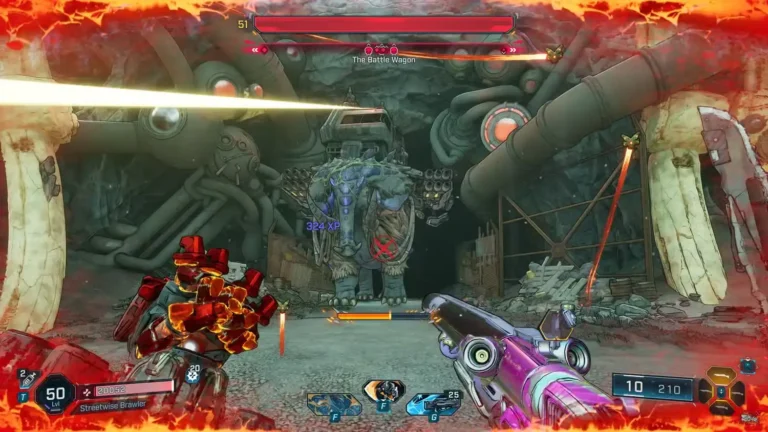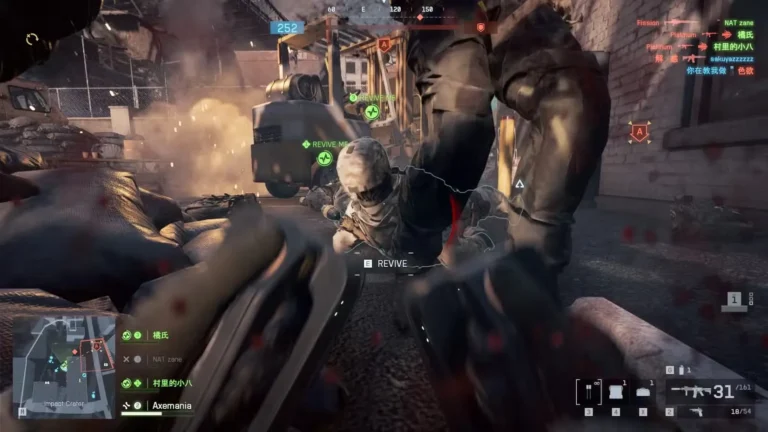Why This Quest Defines Your Endgame
‘An Equitable Arrangement’ is one of those rare RPG quests where your choices genuinely matter—not in the superficial “pick an ending” way, but through careful groundwork laid hours before the final conversation. This late-game mission determines who controls the Archive, what happens to Halcyon’s future, and whether you can pull off the seemingly impossible: getting two bitter rivals to work together.
Here’s what makes this quest challenging: Most players assume they can walk into negotiations and smooth-talk their way to cooperation. Wrong. By the time you sit at that negotiating table, your success or failure has already been determined by decisions you made earlier—some so subtle you might not have realized their importance.
The stakes are high:
- Control of the Archive (massive power and knowledge repository)
- The fate of multiple factions
- Achievement/trophy unlock for successful cooperation
- Different endings based on your choices
- Permanent consequences for Halcyon’s political landscape
I’ve seen players lock themselves out of the cooperation path without realizing it, then spend hours trying to figure out why the dialogue options won’t work. This guide exists to prevent that frustration and help you navigate one of The Outer Worlds 2’s most complex diplomatic missions.
Let’s break down everything you need to know to successfully broker peace between Auntie’s Choice and The Order.
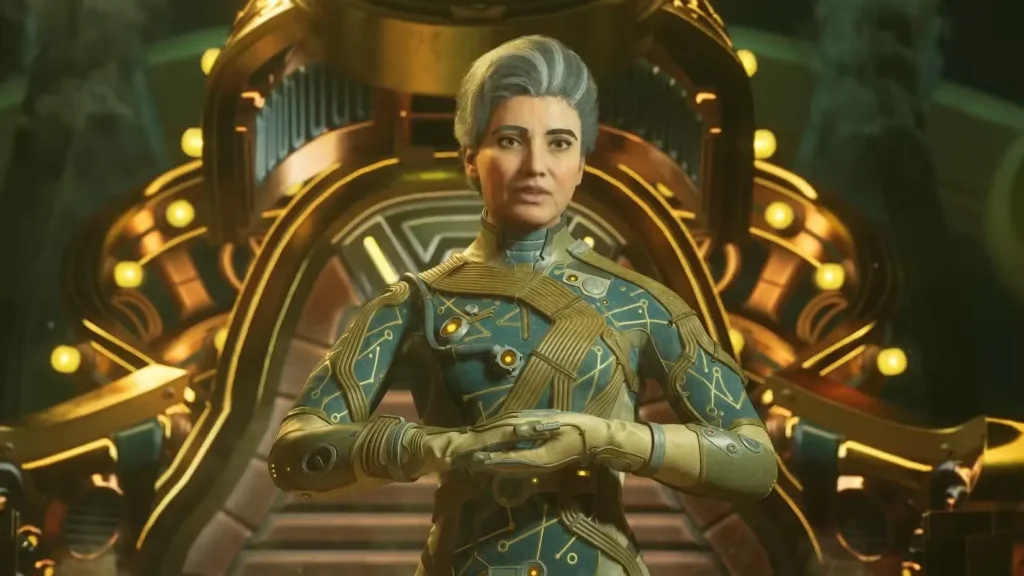
Prerequisites: Setting Up Success Before Negotiations Begin
Here’s the critical truth most guides bury: the negotiation itself is the easy part. The hard work happens long before you enter that room. Miss these prerequisites, and you’ll never even get the option to unite the factions.
Prerequisite #1: Keep the Delegates Alive (Greater Tranquility Station)
The situation: De Vries has assassination plans targeting faction delegates at Greater Tranquility Station. If these delegates die, the cooperation path becomes impossible—dead people don’t negotiate.
Your options:
Option A: Convince De Vries to Stand Down
- Requires successful Speech checks or providing compelling arguments
- Non-violent resolution preserving all characters
- Maintains clean hands and positive karma
- Best option if you’ve invested in Speech skills
Option B: Kill De Vries
- Guaranteed to prevent delegate assassinations
- Violent but effective solution
- May have reputation consequences with certain factions
- Viable option if Speech failed or you prefer direct action
Critical timing: This happens relatively early in the late-game sequence. Don’t skip Greater Tranquility Station or rush through without resolving the De Vries situation.
Why this matters: The delegates who survive become key players in later faction negotiations. Their presence and testimony influences whether leaders will even consider cooperation.
Common mistake: Players sometimes let delegates die thinking it’s a “natural” story outcome, not realizing they’ve permanently locked themselves out of the cooperation ending.
Prerequisite #2: Complete Faction Quests & Build Reputation
The requirement: Both Auntie’s Choice and The Order need to trust you. Trust comes from completing their faction questlines and building positive reputation.
How reputation works:
- Complete faction-specific quests to earn positive reputation
- Make dialogue choices that align with each faction’s values
- Assist faction members and support their objectives
- Avoid actions that harm faction interests
The balancing act: You need positive standing with BOTH factions simultaneously. This is tricky because some actions that please one faction may upset the other.
Strategic approach:
For Auntie’s Choice:
- Complete corporate-aligned missions
- Support profit-driven and pragmatic solutions
- Demonstrate efficiency and results-oriented thinking
- Help Auntie Cleo’s business interests
For The Order:
- Complete faith and community-focused quests
- Support traditionalist and spiritual solutions
- Demonstrate respect for their beliefs and practices
- Help The Order’s religious missions
The questline progression: As you improve reputation and complete faction quests, you’ll eventually gain access to high-ranking officials on both sides. These officials task you with additional missions that further prove your worth.
Success indicator: When you’ve earned sufficient trust, you’ll be granted audiences with the top leadership: Auntie Cleo herself and Bishop Ruth Basar.
Timeline consideration: This reputation building is woven into the main questline as you’re trying to gain Archive access and process rift data. Don’t rush—take time to properly complete faction missions rather than shortcutting through the story.
For more on faction management, see our complete factions guide.
Prerequisite #3: Do NOT Attack the Archive Alone
CRITICAL WARNING: If you attempt to take on the Protectorate at the Archive independently before exhausting diplomatic options, you will permanently lock yourself out of the cooperation path.
Why this restriction exists: Attacking the Archive solo signals you’ve chosen the violent, unilateral path. The game interprets this as your decision to bypass negotiations entirely.
What “attacking alone” means:
- Initiating combat with Protectorate forces at the Archive
- Attempting to forcibly breach Archive defenses
- Refusing to pursue diplomatic solutions with either faction
How to avoid this mistake:
- Don’t rush into the Archive area guns blazing
- Complete all faction dialogue and quest opportunities first
- Wait for the official negotiation quest trigger
- When in doubt, talk before shooting
If you’ve already attacked: Unfortunately, you’ve likely locked yourself out. Load an earlier save before the Archive assault if you want the cooperation ending.
Securing Initial Cooperation: Convincing the Leaders
With prerequisites complete, you now need to convince both leaders that negotiation is worth attempting.
Convincing Auntie Cleo
The good news: Auntie Cleo is surprisingly amenable to cooperation. As a pragmatic businessperson, she recognizes the strategic value of a partnership.
Conversation approach:
- Speak with Auntie Cleo after completing her faction quests
- Suggest the possibility of collaboration with The Order
- She’ll likely agree readily—her corporate mindset sees the profit potential
Why she agrees: Cooperation means access to The Order’s resources, influence, and legitimacy. From a business perspective, it’s a smart play. Auntie Cleo doesn’t let ideology stand in the way of advantage.
Key dialogue indicators: Look for options that frame cooperation as mutually beneficial, strategic, or profitable. Auntie responds well to practical arguments rather than emotional or idealistic ones.
Convincing Bishop Ruth Basar
The challenge: Ruth is significantly harder to convince. As leader of The Order, she’s bound by faith, tradition, and principles that don’t bend easily for pragmatism.
Speech check requirement: Successfully convincing Ruth requires passing a Speech check. The exact threshold varies, but Speech 7 appears sufficient.
My successful dialogue sequence:
Opening: “Vicar Levin has expressed the desire to resume negotiations. I think he’s right.”
Why this works: Invoking Vicar Levin—a respected figure within The Order—provides internal support for your suggestion. You’re not asking Ruth to trust an outsider’s judgment; you’re aligning with trusted voices within her own organization.
Key persuasion moment: “I consider you a wise leader, Bishop. Wise enough to see the potential benefits here.” (Speech 7)
Why this works: You’re appealing to Ruth’s wisdom and leadership while acknowledging the benefits require vision to see. It’s respectful, acknowledges her authority, and frames cooperation as the smart, forward-thinking choice.
Confirmation and commitment: “I’m sure. I want Auntie’s Choice and the Order to work together.” “I’ll do whatever it takes to earn an audience with her.”
Why this works: Demonstrating certainty and willingness to facilitate the process shows you’re committed, not just casually suggesting they talk. Your dedication to making it happen gives Ruth confidence the effort won’t be wasted.
Speech skill importance: If you lack Speech 7, you may struggle with this conversation. Consider leveling Speech before attempting, or loading earlier saves to reallocate skill points if needed.
For Speech skill optimization, check our best starting builds guide and complete perks list.
The Negotiation: Complete Dialogue Walkthrough
You’ve done the groundwork. Both leaders have agreed to meet. Now comes the actual negotiation—a tense, multi-stage conversation where one wrong choice can collapse the entire agreement.
Before Entering: Save Your Game
CRITICAL: Before entering the negotiation room (right after exiting the elevator), create a manual save.
Why this matters:
- You can experiment with different dialogue paths
- If negotiations fail, you can retry without replaying hours of content
- You can see alternate outcomes without permanent consequences
- Achievement hunting becomes easier
Pro tip: Create multiple save slots here. Name them clearly (“Pre-negotiation,” “Cooperation attempt #1,” etc.) so you can easily track different approaches.
Stage 1: Setting the Tone
Opening statement: “I see why a neutral third party was needed here.”
Analysis: This establishes your role as mediator rather than advocate for either side. You’re positioning yourself as the reasonable voice that can bridge their divide. Both parties need to see you as fair, not biased.
Transitioning to business: “Let’s get down to it. What will it take to make this partnership happen?”
Analysis: Direct and solution-focused. You’re not wasting time with pleasantries or ideology—you’re here to solve problems. This appeals to Auntie’s corporate efficiency while showing Ruth you respect everyone’s time.
Stage 2: The Archive Control Question
This is the first major sticking point. Who gets control over the Archive?
Framing the core issue: “The most important thing to decide first is who gets control over the Archive.”
Analysis: You’re identifying the elephant in the room. Both factions want the Archive, and avoiding this question won’t work. By addressing it directly, you demonstrate courage and strategic thinking.
The Order’s claim: “Ruth is right. The Order built the Archive. It belongs to them.”
Analysis: This seems like you’re taking The Order’s side, and Auntie Cleo will push back. But you’re establishing a foundation of historical truth and property rights. The Order DID build it—that’s factual, not opinion.
Auntie Cleo’s objection will come here. She’ll argue that historical ownership doesn’t matter given current realities.
Softening The Order’s position: “It needn’t be forever. What’s a small sacrifice now for greater gains later?”
Analysis: You’re pivoting back to Auntie Cleo’s perspective—this is about strategy, not eternal arrangements. You’re asking The Order to be flexible for long-term benefits, appealing to Ruth’s wisdom while acknowledging Auntie’s need for influence.
Empowering Auntie’s solution: “You’re the corporate genius, aren’t you? I’m sure you’ll figure out something.”
Analysis: Flattery with purpose. You’re acknowledging Auntie’s business acumen and implicitly suggesting she’s smart enough to find creative solutions that satisfy both parties. It challenges her to rise to the occasion.
Stage 3: Production Oversight
The conversation shifts to who oversees actual operations and production.
Balancing the scales: “I disagree. Nothing in life comes for free. Auntie’s Choice should oversee production.”
Analysis: After supporting The Order’s ownership claim, you’re now supporting Auntie’s operational control. This creates balance—The Order owns it, but Auntie’s Choice manages day-to-day operations. Both parties get something.
Why this works: It separates ownership from management, a common corporate structure. The Order maintains spiritual and legal ownership while Auntie’s Choice handles practical logistics.
Stage 4: Shared Technology Proposal
Here’s where cooperation becomes tangible.
The breakthrough suggestion: “Crazy idea, but maybe the Order and Auntie’s Choice can share the technology?”
Analysis: You’re framing it as unconventional (“crazy idea”) which preempts resistance by acknowledging it’s unusual. But sharing technology is the logical conclusion of cooperation—both factions benefit from advances rather than one monopolizing progress.
Acknowledging imperfection: “Better than a poke in the eye!”
Analysis: Humor and realism. You’re not promising perfection—cooperation is messy and imperfect. But it’s better than conflict, better than one side dominating, better than nothing.
Stage 5: Cultural Integration
Discussions turn to how two very different organizational cultures can work together.
Optional: Background-specific dialogue: “Now you’re talking. I enjoy a few ‘chemical cocktails’ myself.” (Ex-Convict background required)
Analysis: This is flavor dialogue that doesn’t significantly impact negotiations but adds personality. If you have the Ex-Convict background, this moment of shared experience can build rapport.
Note: Background-specific dialogue options appear throughout The Outer Worlds 2. They rarely change outcomes dramatically but add depth and role-playing value. Our backgrounds guide covers these interactions in detail.
Reinforcing the partnership: “But it is Auntie’s business now, Ruth. You two are working together.”
Analysis: Gentle but firm reminder to Ruth that the partnership is happening. This isn’t theoretical anymore—they’ve committed, and now it’s about making it work. You’re holding both parties accountable to their agreements.
Stage 6: Safety Concerns
Ruth raises concerns about the safety of proposed methods or technology.
Acknowledging concerns: “This apparatus you’ve mentioned – it doesn’t sound very safe.”
Analysis: You’re validating Ruth’s concern rather than dismissing it. Safety matters, especially to The Order which emphasizes protecting their community. By taking her concern seriously, you maintain her trust.
Demanding transparency: “What are the chances that this turns out successful? You must have run the numbers.”
Analysis: You’re holding Auntie’s Choice accountable for their proposals. If they’re suggesting potentially dangerous methods, they need to justify the risk with data. This shows Ruth you won’t let corporate interests steamroll safety concerns.
Stage 7: Final Decision Point
The negotiation approaches its conclusion. Final commitments must be made.
Respecting autonomy: “It’s your decision, Ruth. If you’re prepared to pay the cost, who am I to object?”
Analysis: You’re returning agency to Ruth. After guiding the conversation this far, you’re acknowledging that ultimately, The Order’s leader must make the final call. This respects her authority and demonstrates you’re a facilitator, not a dictator.
Why this is crucial: If you try to force Ruth’s decision, she may resist on principle. By giving her the freedom to choose, you make it easier for her to choose cooperation.
Celebration of success: “I’m just happy you two were able to reach an agreement at all.”
Analysis: Genuine relief and satisfaction. You’re acknowledging how difficult this was and celebrating that it actually worked. This positive reinforcement helps cement the agreement and reminds both parties this outcome wasn’t guaranteed—they chose cooperation.
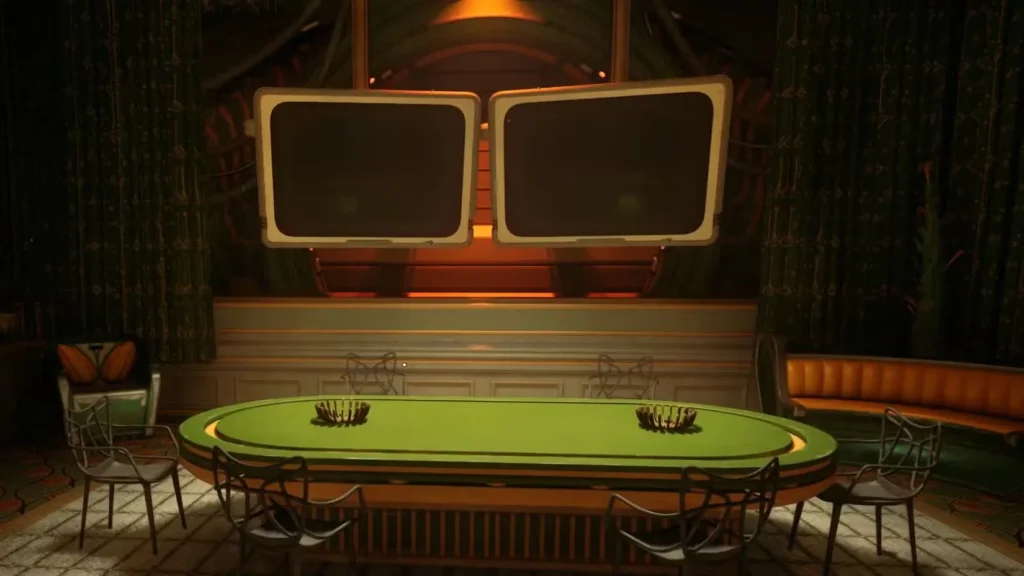
Alternative Dialogue Paths
The sequence I’ve detailed above works without requiring high skill levels (except Speech 7 for Ruth). However, it’s not the ONLY path to success.
Other Viable Approaches
High Speech builds: Players with Speech 12+ may have additional persuasion options that streamline negotiations or bypass certain conflicts.
Faction-aligned dialogue: If you have particularly high reputation with one faction, unique dialogue reflecting that relationship may appear.
Background variations: Different character backgrounds unlock unique dialogue options that can influence negotiations in subtle ways.
Skill-based solutions: Engineering, Science, or other technical skills might unlock alternative solutions to specific negotiation points (technology sharing, safety concerns, etc.).
Flexibility in Dialogue
The key principle: You need to demonstrate balance—supporting both factions at different points, acknowledging each side’s concerns, and facilitating compromise.
What stays constant:
- Both sides need to feel heard
- Both sides need to gain something tangible
- Both sides need to sacrifice something
- You must maintain neutral mediator status
What can vary:
- Specific dialogue choices within each stage
- Order of addressing certain concerns
- Emotional tone (humor vs. serious)
- Personal interjections based on background
Experimentation encouraged: With your pre-negotiation save, you can safely experiment with different dialogue combinations to find paths that feel more natural to your character’s personality.
Achievement/Trophy: Corporation Cooperation
Unlocked by: Successfully convincing Auntie’s Choice and The Order to work together through ‘An Equitable Arrangement’ negotiations.
Rarity: Likely rare-to-uncommon. Many players will miss prerequisites or choose one faction over cooperation.
Value: Beyond achievement points, this represents one of the “best” endings where you’ve maximized positive outcomes rather than choosing sides.
Achievement hunting tip: With your pre-negotiation save, you can also pursue other endings (siding with just one faction) by reloading after unlocking Corporation Cooperation. Our complete achievement guide details optimal unlock strategies.
Consequences: What Cooperation Actually Means
So you’ve successfully brokered peace. What happens next?
Immediate Outcomes
Archive control: Shared between both factions per your negotiated terms—The Order maintains ownership, Auntie’s Choice manages operations.
Technology access: Both factions benefit from Archive research and discoveries, preventing monopolization.
Political stability: Halcyon gains a powerful alliance rather than destructive faction warfare.
Your reputation: Massive respect from both factions for pulling off the impossible.
Long-Term Implications
Power balance: No single faction dominates Halcyon’s future. The cooperation creates a balance of power that could stabilize or complicate future events.
Economic impact: Auntie’s Choice’s corporate resources combined with The Order’s community reach creates economic opportunities.
Cultural tension: Just because they’re cooperating doesn’t mean centuries of rivalry disappear. Expect friction, conflicts, and ongoing negotiations.
Your role: As the architect of this alliance, you become politically significant. Both factions owe you, which creates influence and opportunities (and possibly enemies among hardliners who opposed cooperation).
Comparing to Other Endings
Siding with Auntie’s Choice only:
- Corporate control of Archive
- Profit-driven approach to technology
- The Order marginalized or eliminated
- Economic focus, less spiritual emphasis
Siding with The Order only:
- Religious control of Archive
- Faith-driven approach to technology
- Auntie’s Choice diminished influence
- Spiritual focus, potentially less economic development
Cooperation (this path):
- Balanced control and shared benefits
- Multiple perspectives on technology use
- Both factions maintain relevance
- Compromise and ongoing negotiation
Which is “best”? That’s subjective and depends on your character’s values and your vision for Halcyon’s future. Cooperation maximizes faction survival but creates complexity. Single-faction endings are cleaner but eliminate alternatives.
For more on major story choices, see our Auntie’s Choice vs Order Ascendant guide.
Common Mistakes & How to Avoid Them
Mistake #1: Letting Delegates Die
The error: Not dealing with De Vries properly at Greater Tranquility Station, resulting in delegate assassinations.
The consequence: Cooperation path permanently locked—dead delegates can’t facilitate negotiations.
Prevention: Prioritize the De Vries situation. Either persuade her to stand down or eliminate her before she acts.
Mistake #2: Insufficient Faction Reputation
The error: Rushing through the main story without properly building reputation with both factions.
The consequence: Leaders won’t trust you enough to attempt cooperation, or crucial faction quests remain unavailable.
Prevention: Take time with faction questlines. Don’t skip optional faction missions. Balance reputation gains between both factions.
Mistake #3: Attacking the Archive Prematurely
The error: Attempting to solve the Archive situation through violence before exhausting diplomatic options.
The consequence: Game interprets this as choosing the unilateral path, locking out cooperation.
Prevention: Don’t attack the Archive until you’re certain diplomatic options are exhausted. When in doubt, talk first, shoot later.
Mistake #4: Biased Dialogue Choices
The error: Consistently favoring one faction during negotiations, making the other feel you’re not a neutral mediator.
The consequence: Negotiations collapse because one side doesn’t trust your fairness.
Prevention: Balance your support. For every point you make supporting one faction, make one supporting the other. Demonstrate you understand both perspectives.
Mistake #5: Not Saving Before Negotiations
The error: Walking into negotiations without creating a save point.
The consequence: If negotiations fail, you have to replay potentially hours of content to retry.
Prevention: ALWAYS save before critical dialogue sequences, especially complex multi-stage negotiations like this.
Mistake #6: Low Speech Skill
The error: Attempting negotiations without sufficient Speech skill to convince Ruth initially.
The consequence: Can’t even get Ruth to agree to negotiate, blocking the entire cooperation path.
Prevention: Invest in Speech earlier in your playthrough if pursuing diplomatic solutions. At minimum, reach Speech 7 before attempting this quest.
Advanced Tips & Optimization
Reputation Management Strategy
Throughout your playthrough:
- Track reputation with both factions via menu/journal
- Before major story decisions, check how they’ll impact faction standing
- Complete faction side quests regularly, not all at once
- Don’t ignore one faction while focusing on the other
Balancing act: Some quests force you to choose sides. When possible, select options that please your target faction without actively harming the other.
Speech Investment Timeline
If planning diplomatic playthrough:
- Invest in Speech early (starting build or first few levels)
- Aim for Speech 7+ by mid-game
- Supplement with Speech-boosting gear/consumables
- Consider Speech-related perks and traits
Our traits tier list identifies which traits benefit diplomatic builds.
Quest Order Optimization
Recommended sequence:
- Complete early faction quests for both Auntie’s Choice and The Order
- Build reputation equally (don’t heavily favor one)
- Handle Greater Tranquility Station (De Vries) when it becomes available
- Continue main story until gaining audiences with faction leaders
- Secure initial cooperation agreement from both leaders
- Proceed to official negotiation meeting
Don’t rush: Taking time to properly complete prerequisites makes the final negotiation dramatically easier.
Dialogue Experimentation
With your pre-negotiation save:
- Try different dialogue approaches to understand flexibility
- Test how high-skill options (Speech 10+, Science, etc.) change conversations
- Explore background-specific dialogue and its impact
- Learn which specific choices are crucial vs. which have flexibility
Educational value: Understanding what CAN vary helps you make more confident choices in future playthroughs or when helping friends.
Thematic Analysis: Why This Quest Matters
Beyond mechanics and achievements, ‘An Equitable Arrangement’ represents The Outer Worlds 2’s core themes.
Compromise vs. Idealism
Both factions have legitimate grievances and valid worldviews. The Order represents tradition, community, and faith. Auntie’s Choice represents progress, pragmatism, and economic power.
The quest asks: Is compromise between fundamentally different value systems possible? Or must one worldview dominate?
Your choice matters: Pursuing cooperation means believing that ideological differences don’t require violent resolution. It’s optimistic and challenging.
Player Agency and Consequence
The prerequisites system demonstrates genuine consequence architecture. Your actions hours before negotiations determine whether cooperation is even possible.
This is good RPG design: Choices matter not through binary “pick your ending” buttons but through accumulated decisions creating or closing opportunities.
Mediation and Power
You’re not forcing cooperation—you’re facilitating it. The player character becomes powerful not through violence or domination but through diplomacy and vision.
Thematic message: Sometimes the hardest victories aren’t won through combat. Sometimes getting people to talk is more difficult and valuable than shooting them.
Integration with Other Questlines
‘An Equitable Arrangement’ connects to multiple story threads:
Archive access: Central to main story progression Faction warfare: Resolution to ongoing conflict Protectorate involvement: Their Archive control is being challenged Rift data processing: Why the Archive matters in the first place
Related quest guides:
Your choices in these quests may influence faction reputation and available options in ‘An Equitable Arrangement.’
Frequently Asked Questions
Can you get cooperation without Speech 7?
Unlikely. Ruth requires persuasion, and Speech 7 appears to be minimum threshold. Higher Speech might offer easier paths.
What if one faction hates me?
You need positive reputation with both. If one faction’s reputation is too low, rebuild it through their quests before attempting cooperation.
Can I change my mind after negotiations?
Once the negotiation concludes, the outcome is set for that playthrough. Load your pre-negotiation save if you want different results.
Do companions affect negotiations?
Bringing faction-aligned companions might provide unique dialogue or influence, though the quest primarily focuses on your choices.
Is cooperation the “canon” ending?
The Outer Worlds series typically avoids declaring canon endings, respecting player choice.
Can you betray the cooperation agreement later?
Depends on post-negotiation story developments. The immediate negotiation creates the alliance; whether it holds depends on subsequent events and choices.
Related Guides & Resources
Major Story Choices:
- Auntie’s Choice vs Order Ascendant
- Kaur vs Milverstreet Choice
- Pinching Pupa: Wentworth vs Bradford
- Kill or Spare Doctor Rasmussen
Character Building:
Faction & Reputation:
Progression & Completion:
Weapon & Gear:
Final Thoughts: The Diplomat’s Victory
‘An Equitable Arrangement’ represents some of the best quest design in The Outer Worlds 2. It rewards preparation, strategic thinking, and genuine role-playing rather than just combat prowess or skill checks.
The satisfaction of success isn’t just unlocking an achievement—it’s knowing you accomplished something genuinely difficult. Most players will pick a side because it’s easier. You brought ancient enemies to the negotiating table and made them see reason.
My personal recommendation: Pursue the cooperation path at least once. Even if you prefer one faction over the other, experiencing the diplomatic resolution provides the most complete understanding of The Outer Worlds 2’s themes and narrative depth.
The path to cooperation is fraught with challenges and potential failure points. But isn’t that what makes victory meaningful? Anyone can shoot their way through problems. It takes skill, patience, and vision to talk your way to lasting peace.
Now go forth, diplomat. Halcyon’s future depends on your silver tongue and careful preparation. Show Auntie Cleo and Ruth Basar that compromise isn’t weakness—it’s the hardest kind of strength.
And whatever you do, save before entering that negotiation room.
External Resources
Official Outer Worlds Information:
